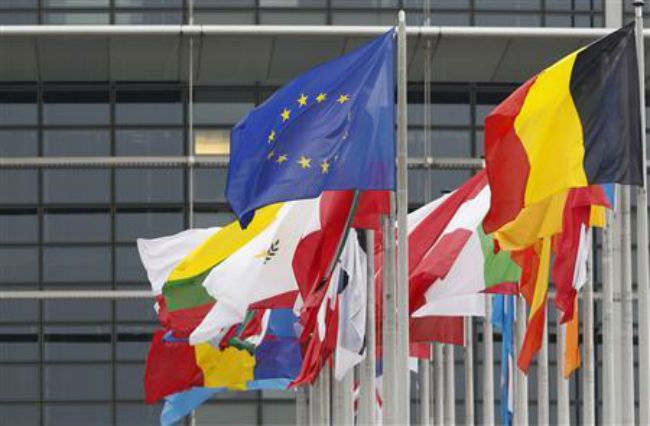
European Union governments imposed sanctions on Tuesday against major Iranian state companies in the oil and gas industry, and strengthened restrictions on the central bank, cranking up financial pressure over Tehran's nuclear program.
More than 30 firms and institutions were listed in the EU's Official Journal as targets for asset freezes in the EU, including the National Iranian Oil Company (NIOC), a large crude exporter, and the National Iranian Tanker Company (NITC).
Both are vital to the Iranian oil industry, the main source of revenue for the government.
Their importance has risen in recent months as the European Union and the United States seek to reduce Tehran's access to cash by forcing Western companies to halt trade with Iran.
Iran said the sanctions would not work.
"We recommend that, instead of taking the wrong approach and being stubborn and using pressure, ... with a logical approach they can return to discussions," foreign ministry spokesman Ramin Mehmanparast told a news conference.
The United States imposed restrictions on NIOC last month and has blacklisted the tanker company.
Justifying the decision, EU governments said that both NIOC and NITC provide financial support to Iran's government.
A senior NITC official said this EU argument was "baseless", saying that the group was privatized in 2000 and was owned by three pension funds. In addition, he said, the poor state of the tanker market mean the company did not have money to spare.
"It is nonsense and it does not add up," the NITC official told Reuters from Tehran. "Our shareholders have control of the company. There is no government interference and there is no connection."
One expert in Washington said both NITC and NIOC served Tehran as fronts for nuclear procurement abroad.
"To shield NITC from sanctions, the Iranian regime concocted a fictitious privatization scheme in the early 2000s," said Emanuele Ottolenghi of the Washington-based Foundation for the Defense of Democracies, which has advised the U.S. government and lawmakers on sanctions. "But in truth, NITC was always a tool in the hands of the regime."
Washington has argued the NIOC is linked with the Islamic Revolutionary Guard Corps, Iran's elite force, which according to the U.S. Treasury Department has recently been coordinating attempts to circumvent Western sanctions of Iranian oil sales.
FRESH IRAN TALKS EYED
The new listings follow a decision on Monday by the 27 EU governments to bring sweeping new sanctions against Iranian banking and energy sectors to try to draw Tehran into serious negotiations about its atom project.
A spokesman for EU foreign policy chief Catherine Ashton said six powers negotiating with Iran were hoping to resume talks soon but that no more meetings had yet been scheduled.
"We focus our sanctions on those who are responsible for the (Iranian) nuclear program, while at the same being open to talks," Michael Mann told a regular news briefing in Brussels. "We have always said we don't do sanctions for their own sake."
Iran denies its work has any military intentions and says it will not scale back activities unless sanctions are lifted.
But Europe and the United States are increasing sanctions pressure amid fears of an Israeli attack on Tehran's nuclear facilities, which could lead to a new war in the Middle East.
In Tuesday's list, the European Union also targeted NIOC subsidiaries, as well as the National Iranian Gas Company and National Iranian Oil Refining and Distribution. Several banks were also listed.
Neither the United States nor Europe import Iranian oil, and both are trying to curb Iran's sales elsewhere.
On Monday, the European Union also banned imports of natural gas and imposed broad measures against EU companies cooperating with Iran's ship-building industry.
© Thomson Reuters.




